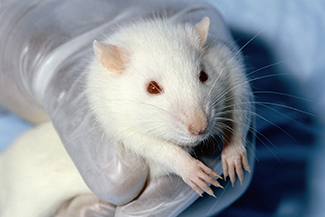Ethics in Research
Psychologists follow not only the scientific method but also strict ethical standards that protect human dignity, safety, and well-being.
Although this was not always the case in the history of psychology, modern researchers must demonstrate that their work is ethically sound before it begins.
Research Involving Human Participants
When human subjects are involved in research, strict guidelines are in place to prevent harm. Institutions that receive federal funding for research involving human subjects must have an Institutional Review Board (IRB).
institutional review board (IRB)
The IRB is a committee of individuals often made up of members of the institution’s administration, scientists, and community members. The purpose of the IRB is to review proposals for research that involve human participants. The IRB reviews these proposals with the principles mentioned above in mind, and generally, approval from the IRB is required for the experiment to proceed.

The Role of the IRB
Before a study can begin, the IRB must confirm that the research design protects participants’ rights, safety, and privacy. Every approved study must include:
- Informed consent: Participants (or guardians, if under 18) must sign a written document describing what to expect in the study, any potential risks, and whether there is compensation.
- Confidentiality: Researchers must protect participants’ personal information and data at all times.
The informed consent form should describe the study as clearly and honestly as possible—without influencing how participants behave.
Deception and Debriefing
Sometimes, researchers use deception—withholding or slightly misleading information—to ensure participants’ natural behavior and protect the integrity of the study.
For example, if a researcher is studying how attire affects first impressions, they might not tell participants the true purpose until afterward. However, deception must never cause harm or significant distress.
After the study, participants must receive a debriefing, which provides:
- A full explanation of the study’s purpose
- The role of any deception and why it was necessary
- Information about how their data will be used
- Contact information for follow-up questions
Research Involving Animal Subjects

Many psychologists also study animals—most often rodents or birds, which make up about 90% of all animal research in psychology (APA).
Because animals share many biological and behavioral processes with humans, they allow researchers to study questions that would be unethical to test on people.
Animal research must meet strict ethical standards to ensure humane treatment. Studies must minimize pain, stress, and discomfort.
Instead of an IRB, institutions that conduct animal research have an Institutional Animal Care and Use Committee (IACUC).
The IACUC:
- Reviews all animal research proposals
- Ensures humane treatment and ethical design
- Conducts semiannual inspections of facilities
- Requires that no project begins without its approval
Ethical oversight ensures that all psychological research—whether involving people or animals—advances knowledge responsibly and respectfully.